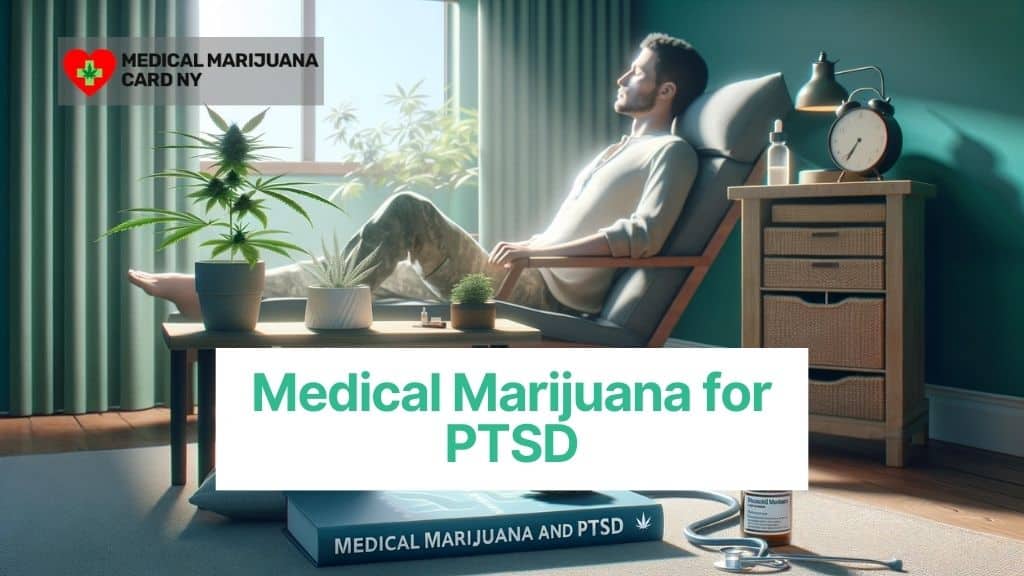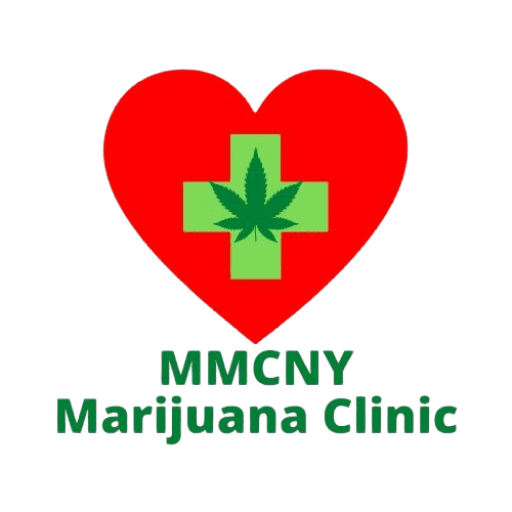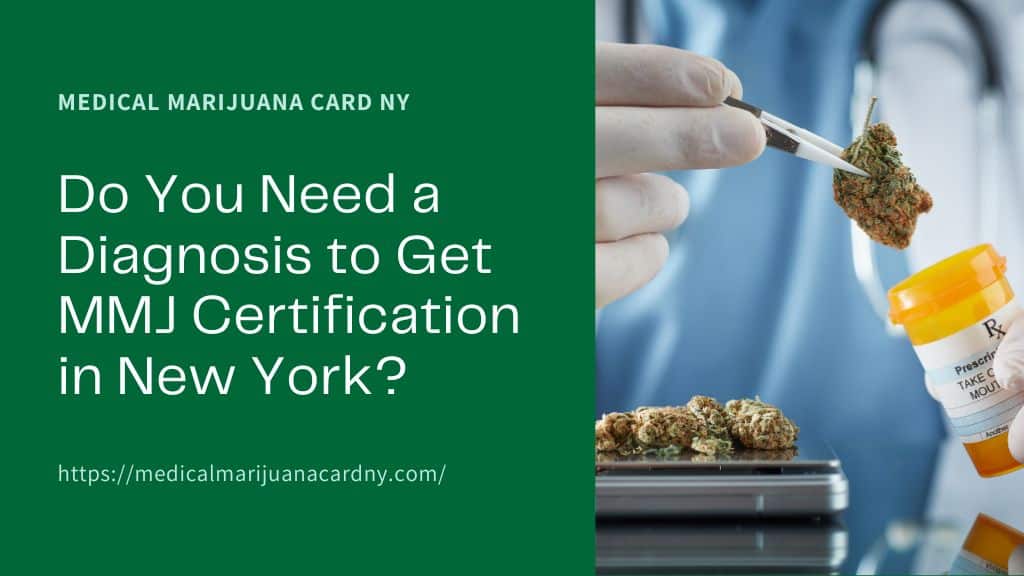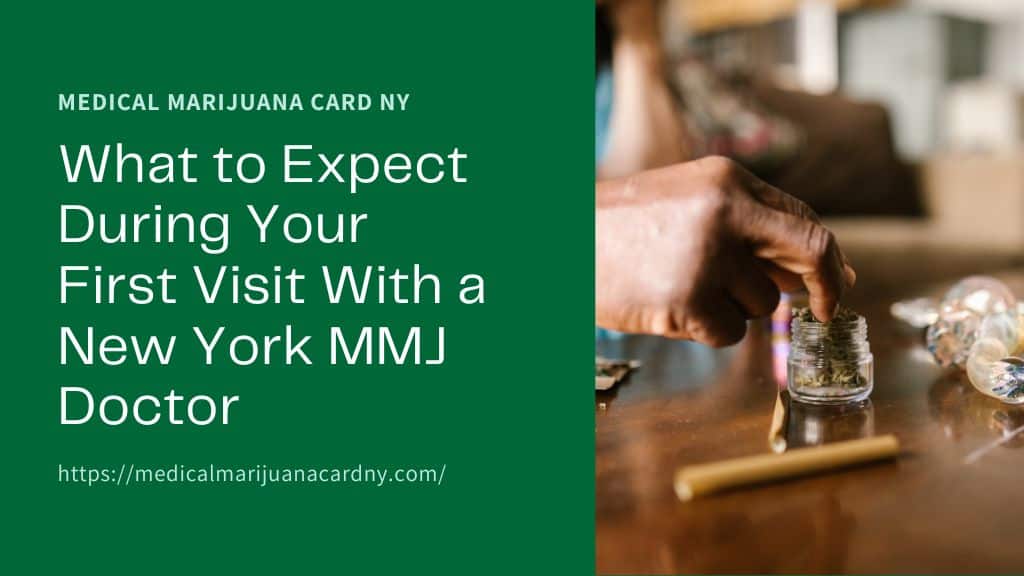Exploring the innovative role of medical marijuana in treating Post-Traumatic Stress Disorder (PTSD), this insightful blog provides a new perspective on managing this challenging mental health condition. With an estimated 3.6% of U.S. adults aged 18-54 affected by PTSD, the urgency for effective treatments is clear. In New York, recent advancements in medical marijuana legislation have made access easier for those in need.
As of 2023, individuals seeking relief from PTSD symptoms can obtain medical marijuana through a streamlined process involving a certification from a licensed medical professional, without the need for a traditional medical marijuana card. This significant policy change reflects a growing recognition of the therapeutic potential of cannabis, particularly in modulating the brain’s response to stress and anxiety.
Clinical studies and patient testimonials underscore the positive impact of cannabinoids like THC and CBD on PTSD symptoms. These compounds have been shown to aid in reducing anxiety, improving sleep quality, and even mitigating recurring traumatic memories. The blog highlights these transformative effects, offering hope to those grappling with the aftermath of traumatic events. By presenting a blend of scientific research and real-world experiences, the blog encourages readers to consider medical marijuana as a viable and accessible treatment option in the journey towards recovery from PTSD.
For a deeper understanding and more detailed insights, readers are encouraged to explore the full blog, which offers a comprehensive view of this new approach to PTSD recovery.
Table of Contents
Toggle- Introduction to Medical Marijuana and PTSD
- Understanding PTSD: Symptoms and Causes
- Medical Marijuana for PTSD: How Does It Help?
- The Science Behind Medical Marijuana and PTSD
- Medical Marijuana Policy in New York
- Acquiring Medical Marijuana for PTSD in New York
- Patient Experiences with Medical Marijuana for PTSD in New York
- Challenges and Considerations
- Conclusion
Introduction to Medical Marijuana and PTSD
What is PTSD and its impact on individuals?
Post-Traumatic Stress Disorder (PTSD) is a mental health condition triggered by experiencing or witnessing traumatic events. It’s characterized by symptoms like flashbacks, avoidance of trauma-related stimuli, increased arousal, and negative changes in cognition and mood. These symptoms disrupt daily life, often leaving individuals in a state of constant anxiety and detachment from loved ones.
In the United States, about 6% of the population will experience PTSD at some point, with around 12 million American adults suffering from it each year. The condition is more prevalent among women than men and is notably common in military veterans and first responders due to their exposure to traumatic events.
PTSD’s impact is profound, shrinking a person’s world and inducing a sustained state of ‘survival mode’. This heightened state of anxiety can lead to difficulties in maintaining relationships and participating in everyday activities. In children, PTSD may manifest through bedwetting, forgetting how to talk, acting out the traumatic event, or excessive clinging to family members, while teens may show disruptive behaviors.
Overview of medical marijuana as a potential treatment for PTSD
Medical marijuana has emerged as a potential treatment for PTSD, given its properties that can influence the endocannabinoid system in the brain. This system plays a crucial role in modulating responses to stress and anxiety. THC and CBD, two key compounds in cannabis, have been observed to potentially aid in reducing anxiety, improving sleep quality, and mitigating recurring traumatic memories.
In light of these findings, states like New York have updated their medical marijuana policies, making access easier for those with PTSD.
Understanding PTSD: Symptoms and Causes
What are the symptoms of PTSD?
Post-Traumatic Stress Disorder (PTSD) manifests through a range of psychological symptoms following exposure to a traumatic event. These symptoms are typically grouped into four categories:
- Re-experiencing Symptoms: These include flashbacks, bad dreams, and frightening thoughts, often triggered by words, objects, or situations that remind the individual of the traumatic event.
- Avoidance Symptoms: Individuals with PTSD may avoid places, events, or objects that remind them of the trauma. This also includes avoiding thoughts or feelings related to the traumatic event.
- Arousal and Reactivity Symptoms: These symptoms are usually constant, instead of being triggered by things that remind one of the traumatic event. They can include being easily startled, feeling tense, having difficulty sleeping, and experiencing angry outbursts.
- Cognition and Mood Symptoms: This includes trouble remembering key features of the traumatic event, negative thoughts about oneself or the world, distorted feelings like guilt or blame, and loss of interest in previously enjoyable activities.
It’s important to recognize that PTSD symptoms can vary greatly in intensity over time and may be more severe when an individual is stressed in general or when reminded of their trauma.
What causes PTSD and who is at risk?
PTSD can develop after an individual experiences or witnesses a traumatic event. This can include military combat, natural disasters, terrorist incidents, serious accidents, or violent personal assaults such as rape. However, not everyone exposed to such events will develop PTSD; it depends on a complex mix of factors.
Risk factors for PTSD include:
- Experiencing intense or long-lasting trauma
- Having experienced other trauma earlier in life
- Having a job that increases the risk of being exposed to traumatic events, such as military personnel and first responders
- Having other mental health problems, such as anxiety or depression
- Lacking a good support system of family and friends
- Having blood relatives with mental health problems, including anxiety and depression
It’s also noted that women are more likely to develop PTSD than men, and genetics may make some people more likely to develop PTSD than others.
Understanding the symptoms and causes of PTSD is crucial for recognizing it in oneself or others and seeking appropriate treatment. If you or someone you know is struggling with symptoms of PTSD, it is important to seek help from a healthcare professional.
Medical Marijuana for PTSD: How Does It Help?
How can medical marijuana potentially alleviate PTSD symptoms?
Medical marijuana has been identified as a potential therapeutic agent for PTSD, showing promise in alleviating symptoms. In recent studies, including an FDA-regulated study, patients with PTSD who used cannabis, particularly strains with higher THC levels, reported improvements. The effects of cannabis in these studies were associated with a reduction in PTSD symptoms, such as fear and recurrent memories experienced during the day.
Cannabis, particularly THC, has psychoactive properties that might contribute to these improvements. Patients receiving cannabis with a significant concentration of THC showed notable improvements in their symptoms. Moreover, the combination of THC and CBD in certain ratios has also been found beneficial. This combination can potentially balance the psychoactive effects of THC with the stabilizing effects of CBD.
What roles do THC and CBD play in treating PTSD?
THC (delta-9-tetrahydrocannabinol) is known for its psychoactive effects and has been observed to aid in alleviating certain PTSD symptoms like fear and recurrent daytime memories. CBD (cannabidiol), on the other hand, does not produce these psychoactive effects and is believed to contribute to mood stabilization. This is particularly useful for patients who might feel mentally or emotionally unstable.
Different strains of medical marijuana show varying levels of THC and CBD, affecting their suitability for treating specific PTSD symptoms. For instance, high-CBD strains are often recommended for daytime use due to their mood-stabilizing effects, while strains with higher THC content are more effective in the evening or at night to aid in sleep.
While the potential of medical marijuana in treating PTSD symptoms is promising, it’s essential to approach its use under medical guidance. This is because cannabis use, particularly over long periods, might have adverse effects. Therefore, it’s recommended that medical marijuana for PTSD should be used with proper monitoring by a mental health professional to ensure the best outcomes and mitigate potential risks.
The Science Behind Medical Marijuana and PTSD
What scientific studies say about medical marijuana for PTSD?
Recent scientific studies on medical marijuana for PTSD have shown promising results. A notable study published in PLOS ONE indicated that smoked cannabis, especially with higher levels of THC, can lead to improvements in PTSD symptoms. This study, the first FDA-regulated research of its kind, compared the therapeutic potential of varying ratios of THC and CBD. The findings suggested that specific combinations of THC and CBD might be effective in treating symptoms of PTSD.
Additionally, research has shown that cannabis users with PTSD reported a more significant decrease in symptom severity and were more likely to no longer meet the diagnostic criteria for PTSD compared to non-users. This underscores the potential role of medical marijuana in alleviating PTSD symptoms. However, it’s important to note that while these studies provide valuable insights, they also highlight the need for further research, particularly in determining the minimally-effective doses of THC and managing the risks of cannabis dependence in vulnerable populations.
Medical marijuana’s influence on the endocannabinoid system in PTSD patients is a key area of investigation. This system plays a significant role in regulating mood and stress responses, and it is hypothesized that the components of cannabis, such as THC and CBD, may interact with this system to provide therapeutic benefits for PTSD sufferers.
Medical Marijuana Policy in New York
Current Policy on Medical Marijuana for PTSD in New York
New York has adopted a more flexible approach towards medical marijuana, especially for conditions like PTSD. The New York Office of Cannabis Management (OCM) no longer requires patients to have specific medical conditions to qualify for medical marijuana. Instead, licensed healthcare professionals have the discretion to prescribe medical cannabis if they believe it will benefit the patient. This significant policy change has opened the doors for a wider range of patients, including those with PTSD, to potentially benefit from medical cannabis.
Evolution of New York’s Approach to Medical Marijuana
New York’s medical marijuana policy has evolved significantly since the legalization of medical marijuana in 2014. The earlier approach was more restrictive, with a set list of qualifying medical conditions. However, as of January 24, 2022, this requirement was dropped by the OCM. Now, conditions like PTSD, among others, are recognized, but the final decision rests with healthcare providers. They can prescribe medical cannabis for any condition they deem fit.
This evolution reflects a growing acknowledgment of the potential benefits of medical marijuana and an effort to make it more accessible to a broader range of patients. It aligns with a more patient-centric approach, where the focus is on the potential therapeutic benefits rather than strict eligibility criteria based on specific conditions.
For those interested in obtaining medical marijuana in New York, the process involves obtaining a medical marijuana recommendation letter from a licensed healthcare professional. Upon approval, patients are automatically registered in the Medical Cannabis Program and receive a registry ID number on their certification, which is used to purchase medical marijuana products.
Acquiring Medical Marijuana for PTSD in New York
Steps to Obtain Medical Marijuana in New York for PTSD
The process to acquire medical marijuana in New York has been streamlined, making it more accessible for patients, including those with PTSD. Here are the key steps involved:
- Consultation with a Healthcare Provider: The first step is to consult with a healthcare provider registered and licensed in New York to prescribe controlled substances. Physicians, nurse practitioners, physician assistants, dentists, podiatrists, and midwives who have completed a minimum two-hour course offered by OCM-accredited providers are eligible to certify patients.
- Obtaining a Medical Cannabis Certification: After evaluating your condition, the healthcare provider can issue a medical cannabis certification if they believe your condition could benefit from medical marijuana. This certification will include your registry ID number.
- Automatic Registration: Once you receive your medical cannabis certification, you are automatically enrolled in the New York medical marijuana program. There’s no need for a separate registration process.
- Accessing Medical Marijuana: With your certification and a valid government-issued ID, you can purchase medical marijuana from registered dispensaries in New York.
Comparing New York’s Medical Marijuana Policies to Other States
New York’s medical marijuana policies are relatively progressive compared to many other states. A significant aspect of New York’s policy is the elimination of specific qualifying conditions. Healthcare providers have the discretion to certify patients for medical cannabis use if they deem it clinically appropriate for their condition. This is a more flexible approach than in some states, where patients must have specific qualifying conditions to be eligible for medical cannabis.
Moreover, the process in New York is simplified with automatic registration upon receiving a medical cannabis certification, which is not the case in all states. Some states still require patients to undergo a separate registration process after obtaining a recommendation from a healthcare provider.
Patient Experiences with Medical Marijuana for PTSD in New York
Who Has Benefited from Using Medical Marijuana for PTSD in New York?
In New York, the use of medical marijuana for treating PTSD has been a subject of significant debate and interest. While New York’s medical marijuana program has been historically restrictive, it has gradually expanded to include PTSD as a qualifying condition. This expansion has been a relief to many, especially veterans, who have long advocated for the use of medical marijuana to manage their PTSD symptoms. The inclusion of PTSD in the list of qualifying conditions was a significant step, recognizing the need for alternative treatments beyond FDA-approved medications, which sometimes carry severe side effects or limited effectiveness.
Personal Stories and Experiences of PTSD Patients Using Medical Marijuana
Patients with PTSD, particularly veterans, have reported experiencing a better quality of life after using medical marijuana. Cannabis has been found to help with sleep disturbances, including night terrors, a common symptom of PTSD. This improvement in sleep quality can significantly impact overall well-being. The use of medical marijuana has also been linked to the replenishment of anandamide, a neurotransmitter associated with the regulation of mood and stress responses. This could explain the relief experienced by many PTSD patients.
Challenges and Considerations
Challenges in Using Medical Marijuana for PTSD
One of the challenges patients face is navigating the medical marijuana program, especially given its historical restrictiveness in New York. Additionally, the stigma associated with cannabis use can be a barrier for some individuals. There are also challenges related to finding the right dosage and strain of cannabis that effectively alleviates their specific symptoms, as the effects can vary greatly between individuals.
Legal and Medical Considerations in New York
Legally, while medical marijuana is permitted for PTSD and other conditions, there are specific guidelines and processes that patients must follow. This includes obtaining certification from a healthcare provider and complying with state regulations regarding the purchase and use of medical cannabis. New York’s policy change in March 2023 has streamlined this process to some extent, making it easier for patients to obtain medical marijuana once certified by a healthcare provider. However, patients and providers must still navigate a system that can be complex, and they must stay informed about the evolving legal landscape of medical cannabis in New York.
Overall, the experiences of PTSD patients with medical marijuana in New York highlight both the potential benefits and the complexities involved in navigating the medical and legal frameworks surrounding its use.
Conclusion
Medical marijuana emerges as a potential adjunct therapy for PTSD, offering hope for symptom alleviation. Scientific studies reveal its efficacy in reducing PTSD symptoms, particularly when prescribed with an understanding of THC and CBD’s roles. New York’s flexible medical marijuana policy enhances access for PTSD patients, removing stringent qualifying conditions and simplifying certification.
While promising, medical marijuana for PTSD requires careful consideration and should be pursued under professional guidance. This evolving landscape underscores the need for continued research and a patient-centric approach to harness medical marijuana’s therapeutic potential for PTSD management.
Resources
https://www.ptsd.va.gov/professional/treat/cooccurring/marijuana_ptsd_vets.asp
https://www.psychiatrist.com/pcc/medicinal-marijuana-posttraumatic-stress-disorder
https://www.psychiatrist.com/jcp/medical-marijuana-for-psychiatric-indications/
https://ascpjournal.biomedcentral.com/articles/10.1186/s13722-015-0032-7





